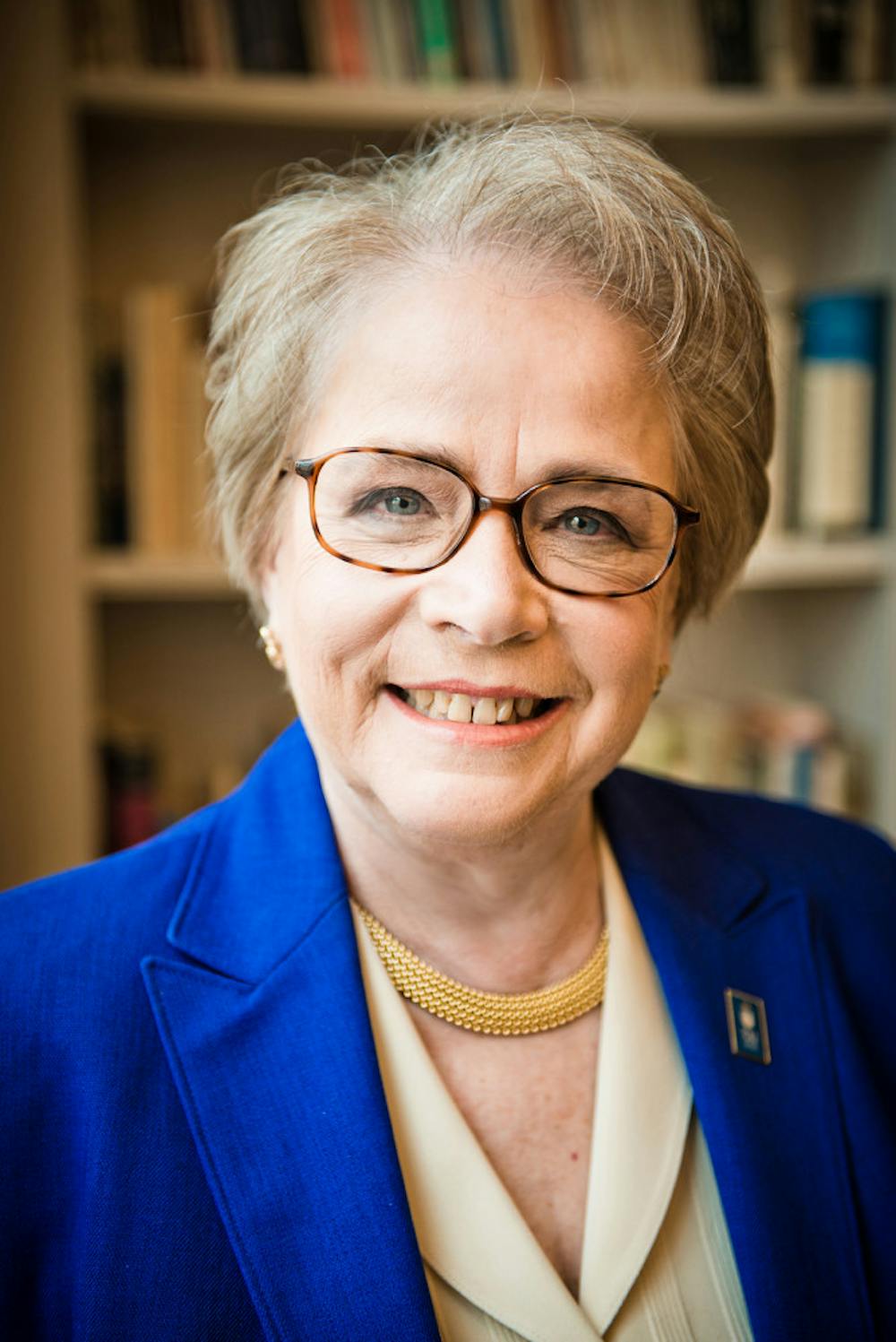By Michelle Lampariello
News Editor
College President R. Barbara Gitenstein has announced her decision to retire at the end of the 2017-18 academic year, after serving in her role for nearly 20 years.
“This was not a decision I arrived at easily, but the timing is right for the institution, for my family and for me,” said Gitenstein in a statement to the press.“It has been the highlight of my professional career to have served as president of this extraordinary institution.”
Board of Trustees Chair Jorge Caballero announced in a campus-wide email that he has appointed Trustee Susanne Svizeny (’79) to chair the Presidential Search Committee and look for potential members from the campus community. The committee will be responsible for selecting the College’s 16th president.
Gitenstein became the College’s first female president on Jan. 1, 1999, taking the reins from Harold Eickhoff. Under her leadership,the College there have been several academic and physical improvements to the campus.
Early in Gitenstein’s presidency, an emphasis was placed on academic quality and the delivery of an education associated with that of private colleges. An integral component of this focus on high quality education was for students to have the ability to do mentored research with faculty members.
“Our faculty thought deeply about their research and how they could engage students in it so that students could learn by serving as junior colleagues while conducting research,” Gitenstein said.
Gitenstein believes that the early emphasis on high quality academics set the precedent for future accomplishments during her tenure.
The College has also seen substantial improvement in four-year graduation rates under Gitenstein’s leadership, especially amongst underrepresented populations. The College now ranks fifth in the nation amongst all public colleges and universities for having the highest rate of students graduating in four years, according to the press release.
69 percent of students participating in the Educational Opportunity Program graduated within four years in 2016, as opposed to 21 percent of EOF students in 1999.
“Time to (receiving a) degree matters,” Gitenstein said. “Students who finish in four years pay less, borrow less, and get started in their careers more quickly. State support per degree is less and graduates begin contributing to the state sooner, both financially and socially.”
Physical changes to the campus have also been prevalent during Gitenstein’s presidency. Six new academic buildings, two new residence halls, a new library and the mixed-use Campus Town project, as well as renovations to nine residence halls and the Brower Student Center have created 1.6 million square feet of new and renovated space during Gitenstein’s tenure.
In order to gain financial support for the College, Gitenstein successfully led a five-year fundraising program, which is now expected to raise over $46 million.
“When we were in the planning stages, our consultant told us that we might be able to raise $25 million, but it would be a stretch,” Gitenstein said. “But I felt that if we were going to make the effort, we had to do better, especially given how great the need is for student support.”
While there has been much success in Gitenstein’s presidency, there have also been some challenges.
One year after Gitenstein took office, the College was under investigation for failing to disclose multiple cases of sexual assault by the Department of Education, according to the press release.
While Gitenstein has acknowledged that there is still more to be done on tackling the issue of sexual assault and other forms of power-based personal violence on campus, the College’s creation of the Office of Anti-Violence Initiatives as well as the Title IX office has provided additional awareness on campus. Additionally, the campus climate survey and mandatory student training have been established under Gitenstein’s tenure to address sexual assault on campus.
After her presidency is over, Gitenstein will be joining the Association of Governing Boards of Universities and Colleges Consulting in Washington, D.C., a firm that specializes in facilitating leadership of universities.
“I look forward to being able to think about higher education from a global perspective instead of an individual institutional perspective,” Gitenstein said. “The new role will allow me to continue to contribute to an industry that I believe is the pride of our nation.”







